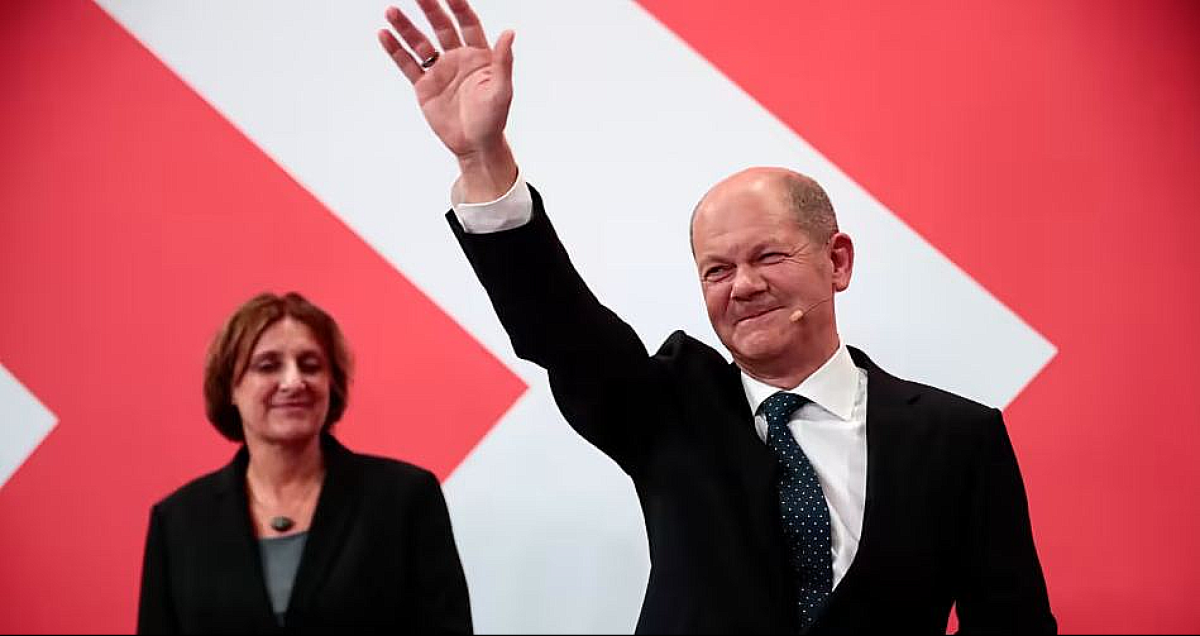 125
125
Having previously referred to Moscow’s special military campaign in Ukraine as a “Zeitenwende,” or a U-turn, the German chancellor, Olaf Scholz, announced on Friday that his country is prepared to assume the leading role in maintaining Europe’s security, pledging to transform the German Army, Bundeswehr, into the best-equipped force in Europe.
Many observers viewed Scholz’s latest declaration as eerily similar to Hitler’s notorious 1930s Wehrmacht rearmament attempts.
The German leader labeled Putin as the “biggest danger” to NATO and highlighted that Europe must be prepared to tackle the impending challenges.Haunted by two catastrophic world wars, Scholz abandoned Germany’s decades-long fundamental policy of military restraint in February when he announced in the Bundestag, the German parliament, that the country’s military budget must reach 2% of the GDP.
Furthermore, he unveiled a €100 billion special budget to bolster Germany’s military capabilities shortly after Russian troops launched their mission in Ukraine.
Scholz also made baseless claims that the Russian President aspires to redraw Europe’s boundaries and accused him of seeking to restore Tsarist Russia or the collapsed Soviet Union by taking over Ukraine.
Prior to the conflict in Ukraine, in contrast to Trump’s contentious relations with Berlin, German authorities had shown more flexibility in expanding German commitments within NATO, in keeping with Biden’s strategy to revitalise transatlantic cooperation.
However, the Ukraine conflict was a catalyst for the dramatic rise in German military spending. From Berlin’s vantage point, the Russian campaign in Ukraine exposed the fallacy of the commonly held belief by Scholz’s predecessors, namely Angela Merkel, that the chance of a classic war on the European continent is zero.
However, Scholz has been dithering about the supply of German heavy weaponry, notably Marder infantry combat vehicles and state-of-the-art Leopard tanks, to Ukraine, while his conservative political partners in the coalition government are staunchly in favour of delivering heavy weapons to the embattled Ukrainian military.
The German newspaper Bild reported last Tuesday that American diplomats had delivered a diplomatic note to Berlin. According to reports, US Secretary of State Antony Blinken allegedly said that Washington welcomes the deployment of German tanks to Ukraine. In recent weeks, the White House has excoriated the German Social Democrat chancellor for failing to provide Ukraine with vital military aid over the last seven months.
The rearmament of Germany’s military capabilities may once again pose security risks to surrounding nations. Countries like Poland and France have bitter memories of the German-led wars during the 20th century.
Although under the current situation, a scenario in which Germans may constitute a danger to their fellow EU allies appears highly doubtful.
Nevertheless, in the long run, and given the unpredictable nature of political dynamics, the German démarche of having the tremendous conventional military force in Europe would create unsettling feelings, at least in Warsaw. Polish unease regarding German rearmament is already palpable, as Warsaw, after eight decades, remembered to demand €1.3 trillion in compensation for Nazi occupation from Germany.
“…I would like to say how important the agreements made by Willy Brandt that the border between Germany and Poland is fixed forever after hundreds of years of history,” Scholz responded to the bizarre Polish demands.
In the meantime, millions of German citizens believe that weapons and military rearmament cannot play a valuable role or a meaningful solution to crises under any given circumstances.
Comment
Post a comment for this article